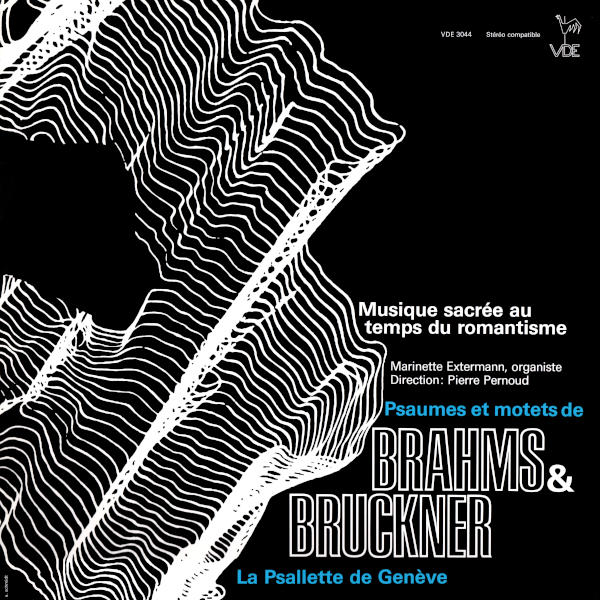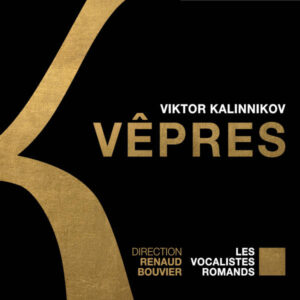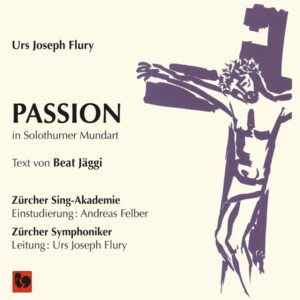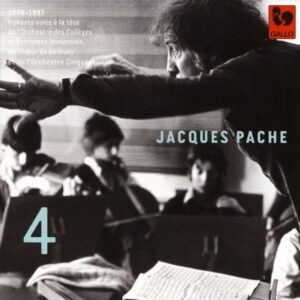Extraits / Excerpts
Brahms & Bruckner: Psalms & Motets - La Psallette de Genève, Pierre Pernoud
La Psallette de Genève, Pierre Pernoud
Johannes BRAHMS: Psalm 13, Herr, wie lange willst du mein so gar vergessen, Op. 27 – Warum ist das Licht gegeben dem Mühseligen?, Op. 74, No. 1: I. Warum ist das Licht gegeben in Mühseligen? – II. Lasset uns. Wenig bewegter – III. Siehe, wir preisen. Langsam und sanft – IV. Mit Fried und Freud ich fahr dahin – Geistliches Lied, Op. 30 – Anton BRUCKNER: Os Justi, WAB 30 – Christus factus est, WAB 11 – Ave Regina caelorum, WAB 8 – Ave Maria, WAB 6 – Tota pulchra es, WAB 46*
Marinette Extermann, Organ
La Psallette de Genève, Pierre Pernoud, Conductor
* Dirk Harmsen, Tenor
Romantic Choral Literature: Brahms and Bruckner
Less known perhaps than that of previous centuries, romantic choral literature is nonetheless extraordinarily rich. Brahms and Bruckner, to name just two…
Their temperaments could hardly be more different.
Anton Bruckner: Power, Brilliance, and Exaltation
Bruckner seeks displays of power and brilliance in the spirit of the organ. He “registers” the voices: contrasting female and male voices, sudden “bursts” where the choir expands to eight parts, and a search for near-orchestral colors. The musician’s solemn and deep faith finds sumptuous means of expression that convey the exaltation (a particularly romantic trait) of the soul.
- Representative Examples:
Seraphic (Ave Maria) or dark and dramatic (Christus factus est), solemn and somewhat austere (Os justi meditabitur), grandly architectural (Tota pulchra es…), Bruckner imbues these short works with an inner dimension that makes them commanding.
Johannes Brahms: Moderation and Classicism
More restrained in expression than Bruckner, Brahms approaches the choir in a much more “classical” way, akin to chamber music. As director of the Bach Hamburger Frauenchor in Hamburg and a devoted admirer of polyphonic masters from Palestrina to Bach, he composed choral works that rank among the finest in his repertoire.
- Where to find it:
Not only in the German Requiem but also in numerous motets and choral works with organ. Skilled in all the complexities of counterpoint, as comfortable as Schütz in constructing a polyphonic fresco (Warum ist das Licht gegeben…), Brahms offers a musical vision of life and, more often, death, where melancholy emotion blends with serene confidence.
The Psalm 13 is also bathed in a light that is uniquely Brahms, as evidenced by the heartfelt serenity of the Geistliches Lied.
Quote:
“Be firm, for what God decides is and shall be called the Best…”
La Psallette de Genève: An Exceptional Vocal Ensemble
La Psallette de Genève is a vocal ensemble composed of amateur singers from diverse backgrounds, united by a shared love of music and a passion for choral singing.
A Rich and Varied Repertoire
Primarily dedicated to the vast a cappella choral repertoire from composers of all eras, the Psallette also includes orchestral works in its program:
- Oratorios and Cantatas:
Vivaldi, Hindemith, Carissimi, Frank Martin - Masses:
Guillaume de Machault, Igor Stravinsky - Major Masterpieces:
Bach’s St. John Passion, Mozart’s Great Mass in C minor and Requiem
For these projects, it has collaborated with the Orchestre de la Suisse Romande, the Orchestre de Chambre de Genève, and the Collegium Academicum.
International Recognition
In addition to its regular activities in Geneva for over 20 years, the Psallette has performed numerous concerts across:
- Switzerland: French- and German-speaking regions
- Europe: France, Italy, Germany, Belgium, Spain
- Notable Tours:
- 1967: Tour in Morocco
- Participation in the International Choral Singing Week in Koblenz (Germany) under the direction of Hans Grischkat (Stuttgart), Klaus Fischer-Diskau (Berlin), and Pierre Pernoud
- 1970: Guest of the 7th Zimriya, the World Festival of Choral Singing in Israel
Recently, it has performed in Sweden and Denmark.
A Key Role in European Choral Singing
- Founding Member of the European Federation of Young Choirs, established in Geneva in 1960.
- Longtime affiliate of the International Choral Movement “À Cœur Joie”.
- Regular participant in major international festivals, including:
- Charleroi, Passau, Nevers
- The Choralies of Vaison-la-Romaine
Additionally, it serves as the official choir of the Jeunesses Musicales of Geneva.
A Discographic Legacy
The Psallette has recorded several albums for:
- The International Record Guild
- The Anthology of Swiss Music, showcasing Swiss Romand composers
It has also produced numerous recordings for Radio Romande and other international broadcasters.
Pierre Pernoud: A Remarkable Career
Born in Geneva in 1930, Pierre Pernoud pursued both classical and musical studies simultaneously.
- In 1953, he obtained a licence ès lettres from the University of Geneva while attending the organ class at the Geneva Conservatory.
- A one-year stay in Paris allowed him to further his university education and earn, under the guidance of Professor Jacques Chailley, the Certificate of Advanced Studies in Music History from the Institute of Musicology at the Sorbonne.
- After passing an entrance examination, he also joined the musical aesthetics course of Roland-Manuel at the National Conservatory of Paris.
- He studied choral conducting under César Geoffray.
A Commitment to Choral Singing
As a National Instructor for the popular choral singing movement “À Cœur Joie”, founded in France by César Geoffray, Pierre Pernoud teaches choral conducting during:
- Choral gatherings
- Training workshops for choir conductors
VDE-GALLO 1973
- Categories
- Composers
- Interprets
- Booklet












